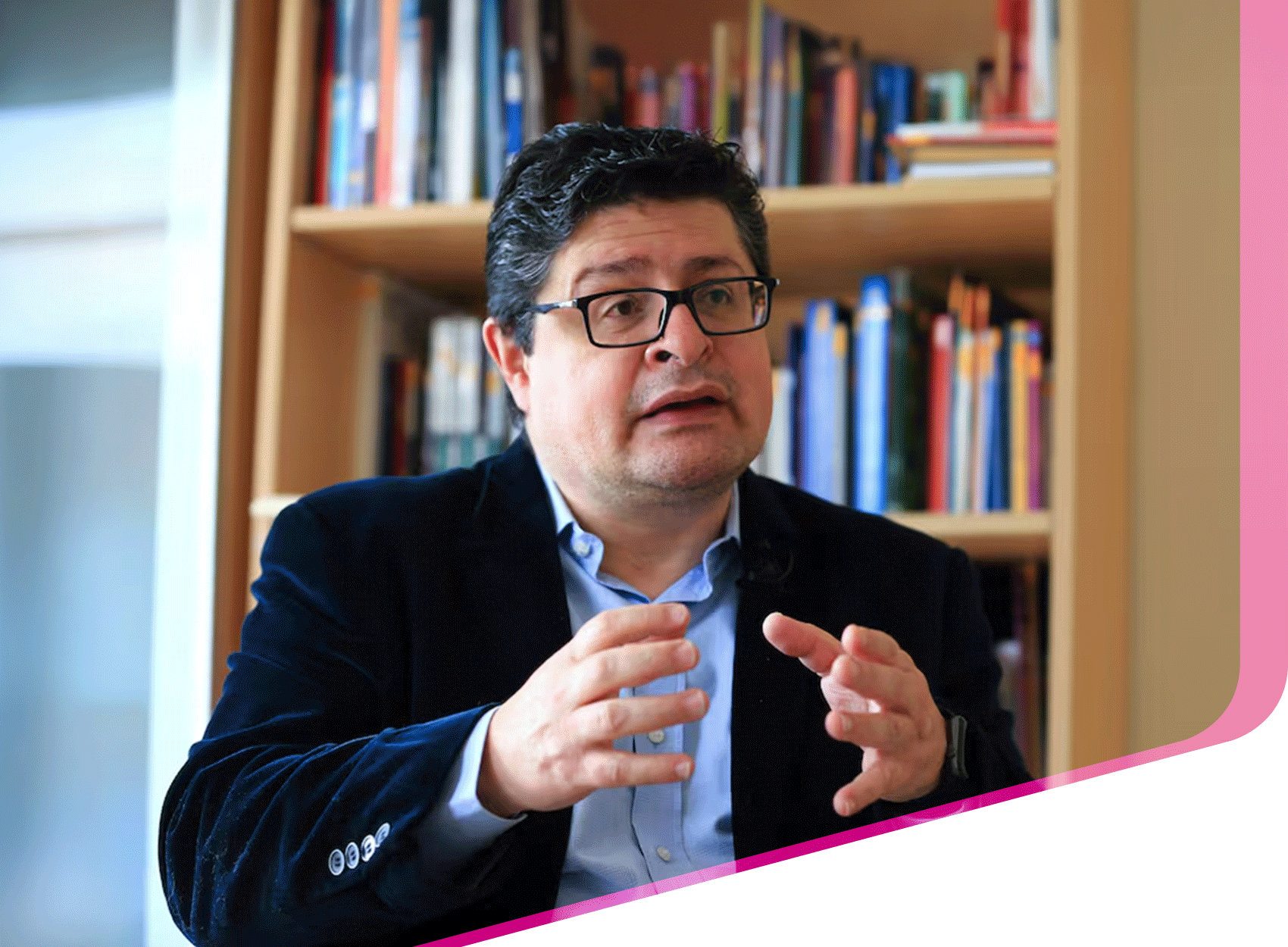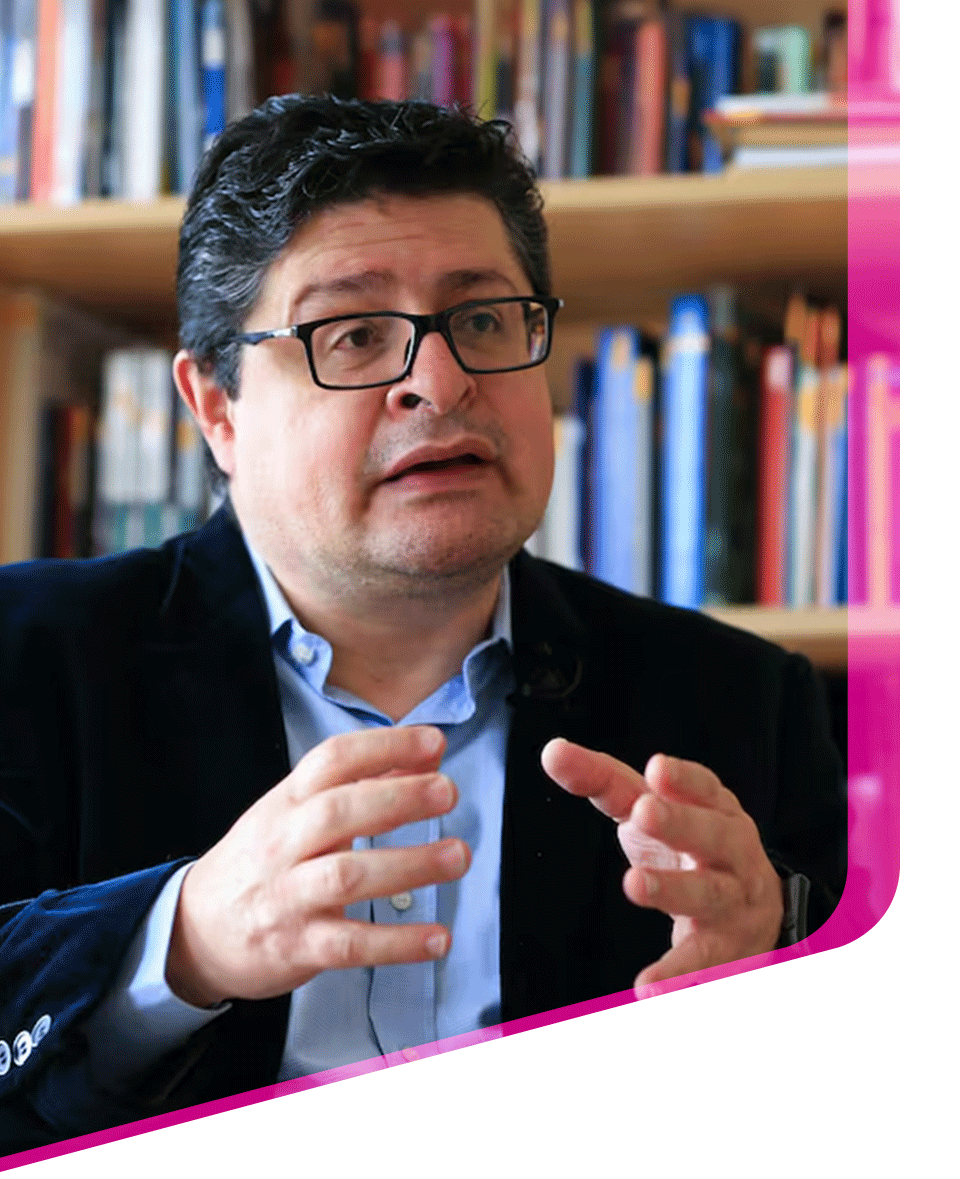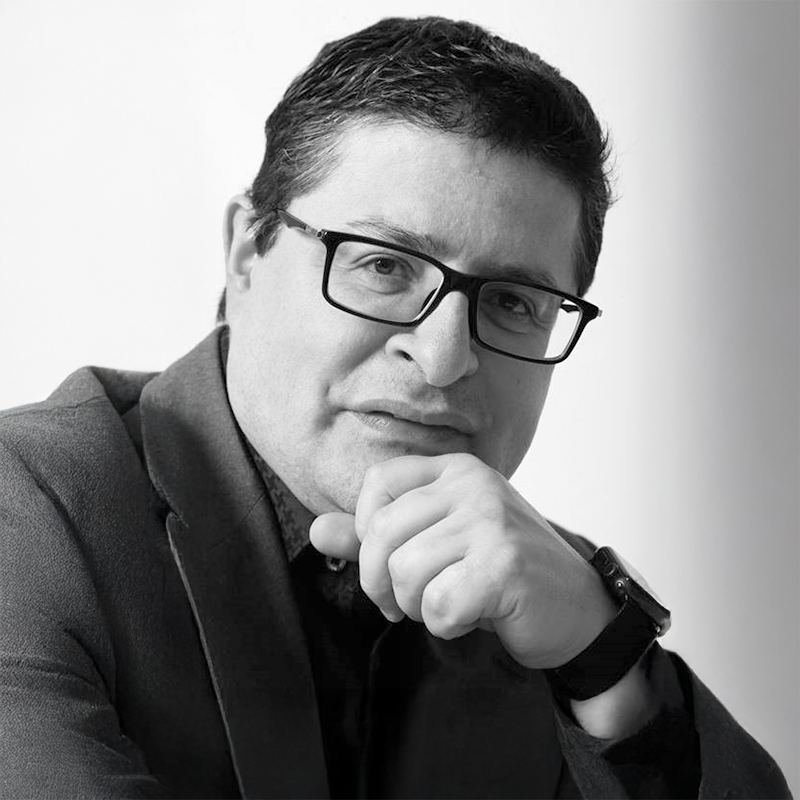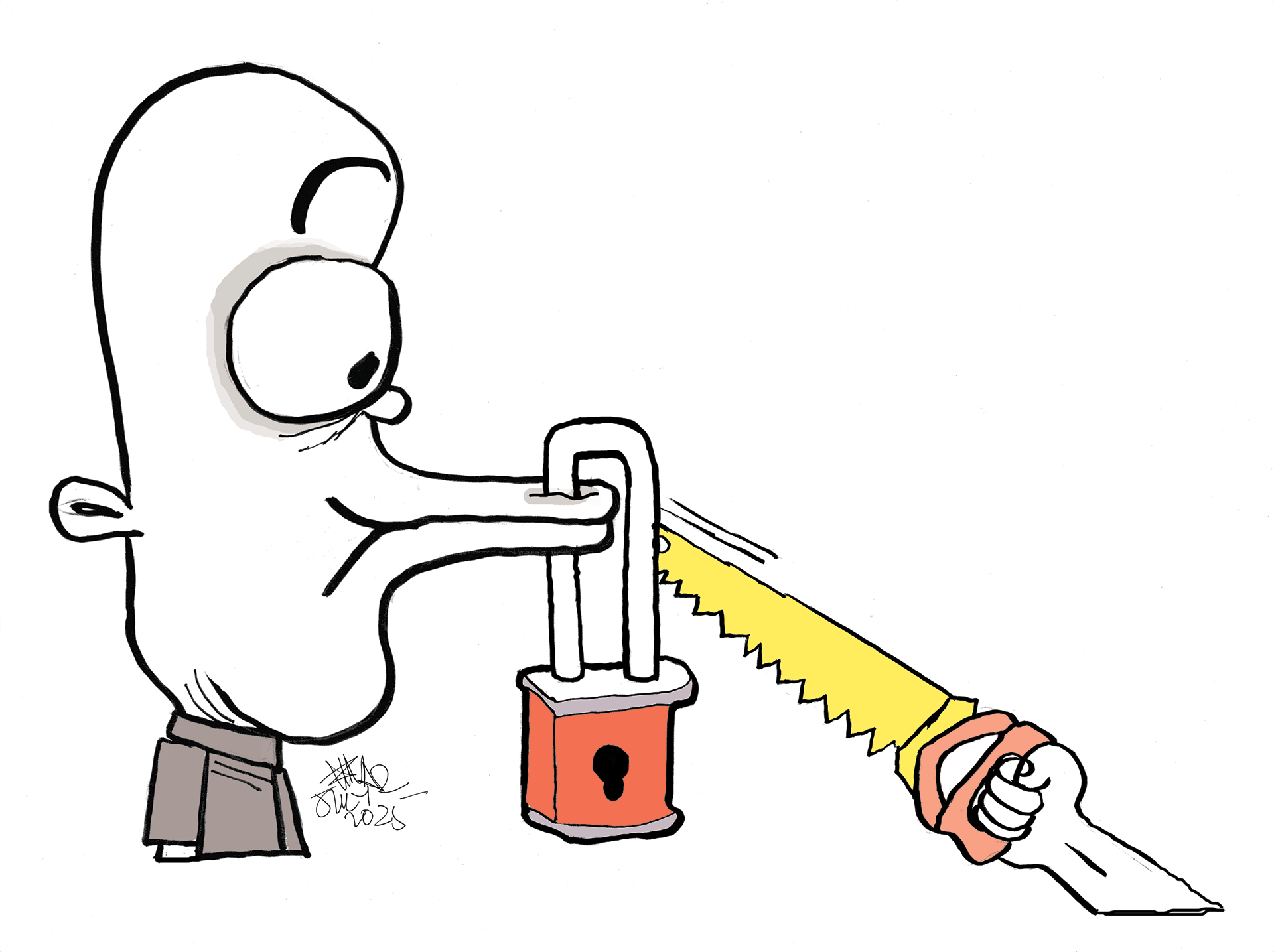
Ecuador
Ecuador
Ecuador
César Ricaurte
César Ricaurte
César Ricaurte
Journalist
Journalist
Journalist

Ecuador
César Ricaurte
Journalist
“Across the Andean region, we are witnessing the alarming entrenchment of authoritarian regimes in Venezuela, Nicaragua, and Cuba – regimes sustained by repression and electoral fraud.“

VITA
César Ricaurte is an Ecuadorian journalist with a distinguished track record in defending freedom of expression and human rights in Latin America. As founder and executive director of Fundamedios, he has established the organization as a regional benchmark in the protection of journalists and the promotion of independent journalism. He has received several prestigious awards for his work, including the Inter American Press Association’s Grand Prize for Press Freedom (Gran Premio Chapultepec) and the Franco-German Prize for Human Rights. In 2012, President Barack Obama mentioned him as one of the most prominent activists for freedom of expression. Ricaurte was a Reagan-Fascell Fellow (National Endowment for Democracy, Washington D.C.) in 2017 and a fellow of the International Academy for Leadership (FNF, Germany) in 2023. Between 2002 and 2008, he was a prominent columnist in the Ecuadorian press and the first Television Ombudsman in national broadcasting. He currently leads strategic initiatives in Ecuador and the Andean region, collaborating with human rights defense networks in countries such as Nicaragua and El Salvador. His work is always guided by democratic values, solidarity, and a deep commitment to human rights.
What is the central focus of your journalistic work, particularly in your role as a civil society representative, and how does it contribute to strengthening human rights and democracy in Ecuador?
For nearly two decades, I have focused my work on building an ecosystem in which independent journalism can survive and fulfil its essential democratic role: holding those in power accountable, amplifying the voices of marginalized communities, and fostering an informed and engaged citizenry. As the founder and director of Fundamedios, I have come to understand that a journalist’s responsibility extends beyond reporting. We are also active defenders of the fundamental right to seek, receive, and share information. In authoritarian environments or contexts plagued by organized crime – such as the current situation in Ecuador – this means resisting repression, protecting journalists, supporting victims, and coordinating civil society responses. Freedom of expression is the cornerstone of all human rights. Its defense is ultimately a defense of democracy itself.
What personal or professional experiences led you to commit yourself, both journalistically and civically, to the defense of fundamental rights?
I grew up in a country where being a journalist meant putting your life at risk – even within a democratic system. I have witnessed colleagues being forced into exile, and I have stood beside the families of murdered journalists in their grief. During Rafael Correa’s presidency, I was systematically targeted for exposing government abuses. That experience convinced me that writing opinion pieces was not enough – we needed to organize and take collective action. I founded Fundamedios because I understood that rights do not defend themselves; they require active protection. My conviction has also shaped my path. I believe that journalism is a form of public service. As Ryszard Kapuściński said, “To be a good journalist, you must first be a good person.” I have always tried to live by that principle.
As a civil society actor, how do you assess the current state of freedom of expression and press freedom in Ecuador and the Andean region? What trends have you observed in recent years, particularly from the civil society perspective?
We are living through a paradox. While some countries have repealed repressive legislation, such as Ecuador’s former “Gag Law,” new and severe threats have emerged. These include the rise of organized crime, increasing precarity and vulnerability in journalistic work, and growing political polarization that stigmatizes critical media voices. Across the Andean region, we are witnessing the alarming entrenchment of authoritarian regimes in Venezuela, Nicaragua, and Cuba – regimes sustained by repression and electoral fraud. Authoritarian tendencies are also advancing in countries such as Peru, El Salvador, Colombia, and Paraguay, while Bolivia, Ecuador, and others have experienced serious democratic setbacks. At the same time, disinformation is being systematically weaponized as a tool for political manipulation and social control. In response, civil society must adapt to an increasingly volatile and dangerous environment. This has required a multifaceted approach combining public denunciation with protection mechanisms, promoting media literacy, and building resilient networks of regional solidarity.

What measures do you believe are urgently needed to improve the protection of journalists and civil society activists in Ecuador? To what extent are you personally involved in these efforts?
There is an urgent need for a comprehensive public protection policy that incorporates emergency response protocols, preventive mechanisms, psychosocial support, and judicial safeguards to combat impunity effectively. It is equally important to reform legal frameworks that criminalize protest or the dissemination of critical information. At Fundamedios, we have actively promoted cooperation agreements with the national police, monitored attacks against the press, managed emergency assistance funds, and provided both legal and psychological support to journalists at risk. On a personal level, I have spoken out publicly in high-risk cases, led regional initiatives such as the Voces del Sur network, and defended persecuted colleagues, including before international human rights bodies. This work is not just a professional commitment – it is a deeply ethical obligation.
What gives you hope and motivation to continue your work? What is your vision for the future of independent journalism and civil society participation in Ecuador?
I am inspired by the everyday resilience of journalists working in the provinces, by community media outlets that continue despite scarce resources, and by young people who believe in truth as a catalyst for change. I also find hope in our growing ability to build transnational solidarity and foster a sense of community in the face of adversity. I believe the future of journalism lies in developing new models of organization and sustainability, while also reconnecting with audiences through honesty, empathy, and a renewed sense of purpose. Civil society, for its part, must reclaim its role as a guardian of fundamental rights. We are not passive observers – we are active participants in the ongoing struggle for democracy.
In your view, what role should the international community, multilateral organizations, and independent media play in protecting human rights defenders in repressive contexts?
Their role must be genuinely supportive, not merely symbolic. Public statements of concern are important, but they must be matched with concrete actions such as sustained diplomatic pressure, flexible funding, increased international visibility, and effective protection mechanisms. International human rights bodies must be strengthened to respond swiftly and decisively in times of heightened risk. Independent media outlets abroad should actively collaborate with local journalists, helping to amplify their stories and safeguard their lives. Most importantly, the international community must not view us solely as recipients of solidarity, but as partners in a shared and urgent struggle to uphold democratic values and fundamental freedoms.
Ecuador
